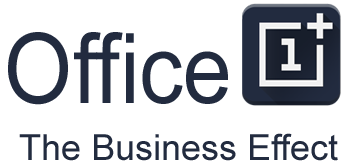With all the advantages to starting a business in Florida, it’s no wonder that so many entrepreneurs and business owners decide to set up shop in Florida.
Florida’s popularity as a business state
Florida’s popularity as a business state is easily explained by its corporate environment, its corporate tax advantages and its employee work culture. First of all, Florida has a diverse economy, a thriving entrepreneurial scene and easy access to financial capital and other business resources. Florida’s top industries include its tourist industry, aerospace and aviation, manufacturing and security and information technology. Florida’s favorable corporate tax climate is also one of the reasons for its attractiveness as a business state. Businesses like LLCs and S-corporations are not required to pay state income tax on personal income that is transferred from the business to the owner, business owners can also save on self-employment tax and other deductible expenses. Florida’s labor force and work etiquette is also something to behold. Floria has a very competitive economy and a highly skilled and talented workforce to match, making it a prime location for startups and small businesses.
How To Start A Business In Florida
Starting a business in Florida is no easy task, but anyone can do it by following this business formation guide. It takes seven steps: step one to start a business in Florida is creating a business plan with your business pitch, the market needs your business caters to, the business target market and marketing strategy all contained in it. A good business plan will help you secure investors and funding and help you manage your business progress and cashflow. The second step is registering your Florida business. It’s important to have researched the different business structures to know which business structure is best suited for your business type before officially registering your business with the state. Step three involves determining the business’ tax obligations and which business licenses and permits you will need to obtain. The Florida Department of Revenue’s guide to corporate state taxes and the U.S. Small Business Association’s website are the best sources of information for state taxes. With regards to business licenses and permits, Florida has a general business license that all businesses operating in Florida are required to obtain, but as far as industry-specific licenses and permits go, your local Chamber of Commerce office will be able to provide more information.
The next step, step four, is separating your personal and business assets by opening a business bank account, a business credit card and building your business credit score. Keeping separate bookkeeping and accounting records for your personal and business affairs will help keep your personal and business assets separate. Step five is securing funding for your business, through banking and other financial institutions, private investors or through more unconventional routes such as crowdfunding, micro loans and trade credit. The options for financing in Florida are endless, and for financial advice, Florida’s Small Business Development Center offers free advice and low-cost workshops for new business owners. The sixth step is building your business brand. Creating a business logo is one of the best ways to brand your business, and having a business website that reaches your target audience is the best way to create brand awareness. The last step to successfully launch your business in Florida is marketing your business. Decide on one quality marketing strategy, invest all your efforts into that strategy and also, make use of software marketing tools and programs, many of them are free or inexpensive.
Where To Begin?
With a thriving economy, easy access to financial capital, all the tax advantages and a highly skilled labor force, Florida is the perfect state for startups and small businesses. If you are looking to start a business in Florida, let TRUiC assist. Visit TRUiC’s site to guide you to start your business without the hassle or costs of someone doing it for you.

